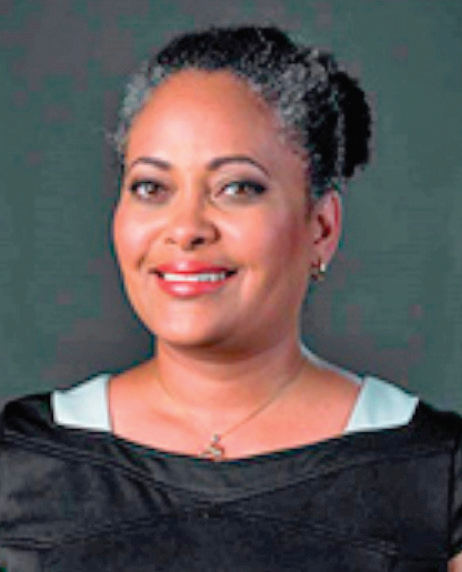News Releases
UWI School of Veterinary Medicine promotes Food Safety in the Poultry Industry
For Release Upon Receipt - October 8, 2021
St. Augustine

The UWI St. Augustine, Trinidad & Tobago. Friday 8th October 2021 — “The poultry industry in Trinidad and Tobago is reported to be the largest and most successful agro-industry contributing to approximately 60% of agricultural GDP. It is completely privately-owned and supplies 100% of the local demand for table eggs and fresh broiler meat,” said Dr. Karla Georges, Director School of Veterinary Medicine (SVM), The University of the West Indies (The UWI) St. Augustine Campus. On August 23rd, 2021, over 150 pluck shop owners and operators in Trinidad and Tobago participated in an interactive webinar themed “Food Safety for Pluck Shops” hosted by The UWI-SVM and sponsored by the Food and Agriculture Organization of the United Nations (FAO).
“Poultry meat is the most widely consumed meat in Trinidad and Tobago accounting for 85% of all meats consumed. This webinar promoted food safety within the sector, by providing training in food safety to small and medium-scaled poultry processing establishments. It aimed to empower this sector to play a lead role in ensuring the safety and wholesomeness of poultry sold to consumers,” said Dr. Georges. The webinar was held in collaboration with the Cottage Processing Associations, the Poultry Association, the large integrators, and the Caribbean Poultry Association.
Targeted to members of the cottage processing sector in Central Trinidad, this training can be extended to other CARICOM countries. The interactive webinar provided pluck shop operators with the information they need to facilitate and apply best practices to their operations; helped operators to understand ante-mortem and post-mortem inspection; provided training in biosecurity and disease prevention with an emphasis on zoonotic diseases such as avian influenza and salmonellosis and showed operators how to improve slaughtering, processing, and selling practices to ensure that a safe and wholesome product reaches the consumer.
The comprehensive and interactive session emphasized the training of cottage operators and workers on hygienic operations of cottage processing facilities, food safety, biosecurity, and waste management. Dr. Georges explained the training was based on a manual for pluck shop operators which is being developed by the School of Veterinary Medicine in collaboration with the FAO. Specifically, the manual will provide guidelines on the design of pluck shops, poultry slaughter operation procedures, transportation and handling of birds prior to slaughter, recognizing a healthy living bird and knowing if the carcass and parts are safe for human consumption. The manual also aims to highlight product safety, good hygienic practices and standard operating procedures for sanitation and the importance of biosecurity.
“We intend that the manual will encourage pluck shop operators to improve their practices and in so doing strengthen the confidence of the consumer in supporting their business,” said Dr. Georges. Reflecting on the webinar, she said the response from participants was overwhelmingly positive and they asked that more training sessions like this should be provided to the public.
The webinar featured introductory remarks by Mr. Rueben Robertson, FAO Representative for Trinidad and Tobago and Suriname, Prof. Terence Seemungal, Dean, Faculty of Medical Sciences The UWI St. Augustine Campus, Dr Saed Rahaman, Director Veterinary Public Health and Senator the Honourable Avinash Singh, Minister in the Ministry of Agriculture, Land and Fisheries.
For more information about the webinar, please contact Dr. Karla Georges at karla.georges@sta.uwi.edu
-END-
About The UWI
The UWI has been and continues to be a pivotal force in every aspect of Caribbean development; residing at the centre of all efforts to improve the well-being of people across the region.
From a university college of London in Jamaica with 33 medical students in 1948, The UWI is today an internationally respected, global university with near 50,000 students and five campuses: Mona in Jamaica, St. Augustine in Trinidad and Tobago, Cave Hill in Barbados, Five Islands in Antigua and Barbuda and its Open Campus, and 10 global centres in partnership with universities in North America, Latin America, Asia, Africa and Europe.
The UWI offers over 800 certificate, diploma, undergraduate and postgraduate degree options in Culture, Creative and Performing Arts, Food and Agriculture, Engineering, Humanities and Education, Law, Medical Sciences, Science and Technology, Social Sciences, and Sport. As the Caribbean’s leading university, it possesses the largest pool of Caribbean intellect and expertise committed to confronting the critical issues of our region and wider world.
Ranked among the top universities in the world, by the most reputable ranking agency, Times Higher Education, The UWI is the only Caribbean-based university to make the prestigious lists. In 2020, it earned ‘Triple 1st’ rankings—topping the Caribbean; and in the top in the tables for Latin America and the Caribbean, and global Golden Age universities (between 50 and 80 years old). The UWI is also featured among the top universities on THE’s Impact Rankings for its response to the world’s biggest concerns, outlined in the 17 United Nations Sustainable Development Goals (SDGs), including Good Health and Wellbeing; Gender Equality and Climate Action.
For more, visit www.uwi.edu.
(Please note that the proper name of the university is The University of the West Indies, inclusive of the “The”, hence The UWI.)
Contact
Marketing and Communications Department
- Tel.: (868)-662-2002 ext.2013/2014
- Email: marketing.communications@sta.uwi.edu

